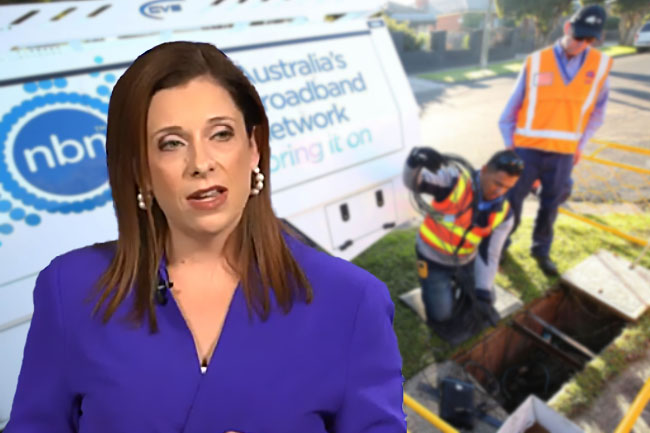Australia's consumer watchdog has announced intentions to improve pricing and competition in the areas of mobile communication and broadband internet, writes Paul Budde.
AUSTRALIA’S OLDEST telecommunications society, TelSoc, organised a very interesting forum discussion with Anna Brakey, a commissioner and chair of the Australian Competition and Consumer Commission (ACCC)’s communications committee and the most senior person in the ACCC in charge of telecommunications. In her presentation, Ms Brakey covered a variety of issues such as competition, the NBN, mobile communications, spectrum issues and low Earth orbit satellites (LEOs).
Her key message in all of this was that the ACCC is very keen to maximise competition in the industry with the aim to achieve the best “net public benefits”.
Obviously, issues such as the ongoing discussions regarding NBN’s Special Access Undertakings (SAUs — basically, conditions and pricing of their wholesale services) and the Telstra-TPG merger were key topics of interest to both the ACCC and the participants of the forum. I have addressed the issues before so I prefer to concentrate on what I took away from her presentation and the discussion.
Of course, people like Anna Brakey are always very careful about what they say and hardly ever give straightforward answers or opinions. I try to read between the lines, look at body language and link to that my knowledge of the industry in trying to understand in which direction the market and the industry are going.
In relation to the NBN, Anna was very much aware of the extraordinarily difficult negotiations between NBN Co, the retail services providers and its customers. She referred to the change in government and I conclude that this has been a key game changer in the way forwards.
NBN Co has come up with variations on its SAUs and then withdrew them again. My conclusion is they saw they were not good enough under the new direction the Government would like to see the NBN developing. Anna mentioned that she believed the NBN is now going in the right direction and that its new offerings will be more in line with what the Government and the industry expect. I really hope she is right as this process is taking far too long, but I am not holding my breath until I see what the new conditions are and how the industry will react to them.
Whether we like it or not, the way the NBN has been developed is very costly and somebody will have to pay for that: the Government, the industry or the users, or a combination of that.
Another NBN issue she discussed was the increase in NBN prices while the upload speeds remain well below what people need, especially with structural changes since COVID, as more people now work from home.
She was also critical of the telcos selling “more for more” — for a small fee, users will get more gigabytes (GB). Most people have no clue what that means and many might think that this will give you a better speed, but that of course has nothing to do with megabits or gigabits (Gbps, Mbps), the measurements used for speed per second. It's all very confusing indeed. While “more for more” offers 70, 150 and even 300GB, the average user, according to the ACCC, doesn’t use much more than 10GB per month.
The ACCC is also forcing the industry to be more honest in what speeds they can deliver as all three major players have been fined for misleading information on what speeds customers get for what they buy. In relation to these fines, it was also suggested that the ACCC should ensure that those fines are not simply passed on to consumers, but aimed at hitting the bottom lines of these companies so the board gets involved as that might result in structural changes to the issue. This is something I wholeheartedly support.
The Telstra-TPG merger is also an interesting development. It most certainly will reduce infrastructure-based competition and this form of competition point of view has been the ACCC mantra for decades. The reality, however, is that telcos are selling their infrastructure or setting up separate companies where they start selling access to their infrastructure to other telcos. I have been predicting this for decades but now finally this is happening.
This supports other trends in the industry where resources are shared, such as data centres and cloud computing. So, it will be interesting to see if the ACCC is going to change direction and start focusing more on service-based competition. Anna’s response was that it all depends on what the “net public benefits” will be. But calculating this was something Anna admitted was extremely difficult — however, she also indicated that it was doable.
As mentioned in this blog, I support a move to service-based competition. However, such a move requires a proper full-scale review of the telecoms market as we will need a different regulatory model.
Another interesting topic she addressed was competition. She mentioned that growth among the top three players (Telstra, Optus, TPG) had slowed but that growth among the smaller players had increased. It looked like she used that as an argument that competition is working. I have refuted this in the past as the other 100-plus smaller players altogether don’t have much more than a 10-15% market share, of which Vocus, with 7%, is the largest.
Furthermore, if we talk about the mobile industry independent service providers (MVNOs), they have been struggling for the last two decades to get a foothold in the market and again, together they don’t have much more than a 5% market share. These two groups would greatly benefit from better regulations to support a service-based competition structure.
Last but not least, Ms Brakey was very supportive of the new LEO services and also of the 5G broadband services as she correctly sees them as improvements of competition, She mentioned that the ACCC is very much aware of NBN’s monopoly and wants to ensure that this is not used to undermine competition.
Paul Budde is an Independent Australia columnist and managing director of Paul Budde Consulting, an independent telecommunications research and consultancy organisation. You can follow Paul on Twitter @PaulBudde.
Related Articles
- Why privatisation of the NBN would be a good thing
- Former Telstra CEO regrets silence over NBN disaster
- Minister asks NBN Co to withdraw its proposal for price increases
- NBN Co asks ACCC for increased protection against mobile operators
- Commonwealth Bank partners with More to offer free or discounted NBN
 This work is licensed under a Creative Commons Attribution-NonCommercial-NoDerivs 3.0 Australia License
This work is licensed under a Creative Commons Attribution-NonCommercial-NoDerivs 3.0 Australia License
Support independent journalism Subscribe to IA.














